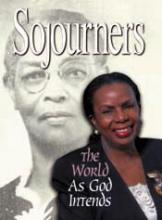Differences around moral issues in the life of the church have always posed a threat to its practice of mission and to the unity intended by God in the body of Christ. Currently, the most severe threat is presented by differences over the church's response to homosexual persons.
No issue today has as much potential to spawn divisiveness, mistrust, gossip, suspicion, and conflict as this one. No issue has more capacity to confuse our focus, drain our energy, injure our fellowship, and divert our mission as this one. No issue can so easily demoralize our meetings, paralyze our process, fuel our anxiety, and cripple our confidence as this one.
This is exactly what has happened in several denominations and church bodies. But it need not be so. And for the sake of our common calling in Christ, it must not be so. The church's focus, convictions, passion, and commitments must be persistently centered on missionon God's mission in this world. That must remain in the forefront of all the church's deliberation and the focus of its energy and effort. This, I believe, is what the vast majority of Christians, across theological and denominational lines, would desire.
Unfortunately, the polarized politics and practices of the culture in which we live often have co-opted the church. We fall victim to those who manipulate "wedge issues" for political advantage. Small numbers with shrill voices on both extremes of this question come to dominate debate and control the agenda. The civil sentiments of the broad majority are subverted. As a result, church bodies merely mirror society's politics in their debate of questions of homosexuality. The question is whether the church can become countercultural in its style and method.
Read the Full Article

